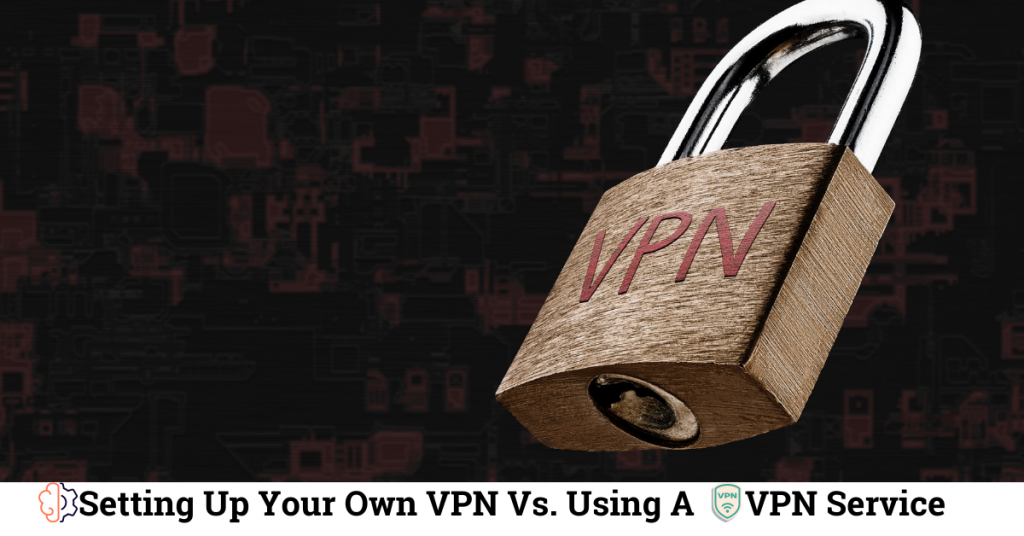VPNs have offered lasting solutions to people who spend most of their time online and require privacy from prying eyes. They’ve also made it possible to access content from locked regions or when you want to access your home network remotely. You can set up your own VPN or purchase a VPN plan from a trusted provider. However, there has been a constant debate regarding the two options, and many people want to know which option is better.
A private VPN is better if you share sensitive data and want to maintain total control over the process. It’s also cheaper, and you only pay for what you use. However, it requires a bit of work to make and maintain. A VPN service is more versatile, allowing you to connect multiple servers. It also requires little work on your side.
This article will examine the core differences between the two, whether a private VPN is safer, and how to set up a private VPN. After reading this article, you’ll be informed on the inner workings of the two and which is better suited for your needs.

Should You Set Up Your VPN Or Purchase A VPN Service?
With countless dangers lurking in the shadows of the internet, having proper protection is no longer a luxury. You need to secure your data and browsing history to deter prying eyes. In addition to hiding your IP address, a VPN can also enable you to access data from restricted regions. Despite their differences, private VPN and VPN services offer the same goal of keeping you safe when browsing the internet.
Which is Better Between the Two?
The idea of having your own private VPN might get anyone excited, and rightfully so. Among the perks of having a private VPN include:
- Total control over the information – A private VPN helps to eliminate the middleman and gives you control over your information. This will help improve your privacy since fewer people will be in the chain.
- Less costly – Private VPN servers charge per hour of operation, unlike a VPN service where you pay a flat fee. This means you’ll only pay for what you use, and you can pause the server if you don’t need it.
- Accessing your home network – A private VPN is connected to your home network, allowing you to access the network remotely. You can access devices such as printers and CCTV cameras remotely.
Although a private VPN is impressive, it doesn’t make a VPN service less effective, and here are some reasons for that:
- Multiple servers – VPN providers have hundreds of servers across different cities, allowing you to connect to them instantly and at no extra charge.
- No maintenance is necessary – Since a VPN provider will be handling all the backend stuff, you won’t need to maintain the servers or troubleshoot them if they stop functioning.
- Shared IP address – A VPN provider will assign the same IP address to clients who access the same server, which helps to maintain anonymity and make it hard to pinpoint a particular user.
Is a Private VPN More Secure Than a VPN Service?
A private VPN might sound like an attractive option compared to purchasing a VPN service, but that doesn’t make it a more secure option. In fact, they both serve the same purpose, only you get more control over your information with a private VPN.
However, a private VPN might have some drawbacks, such as using your actual IP address instead of a shared one. Your privacy might be compromised if someone can track a VPN IP address to any of your accounts. A VPN service provider will assign users a shared IP address if they access the network from a similar server. This option helps to keep your browsing history safe, making it hard for anyone to track your online activities.
However, if you don’t mind getting your hands dirty and learning the inner workings of a VPN, then a private VPN is something you should try. If you have too much on your plate and little time to create and maintain a private VPN, you should opt for a VPN service provider.

How Do You Set Up A Private VPN?
There are two ways you can set up a private VPN, and they include:
- Set up a server on the cloud.
- Host a VPN server on your router.
However, the two methods require a bit of work on your end, such as setting up a server that you’ll connect to and establishing a secure connection.
Setting Up a Server On the Cloud
The easiest and most widely used cloud for creating VPNs is Amazon EC2. However, some people have started using Google Cloud, which offers a $300 free credit for new users. Setting up an Amazon EC2 instance is straightforward, and you can have your private VPN up and running in as little as 15 minutes.
Hosting a Server On Your Router
If you need a direct connection to your private network, then installing and hosting a server on your router is the best option. Check whether your router can support this option, and go for the Open VPN software as it’s easy to install and manage. You should use SSH with Socks5 proxies if you want an easier option. Make sure you have a faster internet connection if you’re going to choose this option.
Final Thoughts
A VPN is crucial for anyone who spends most of their time browsing the internet, as it helps to keep your browsing history private. A strong VPN will also shield you from hackers and anyone who might be looking to do you harm. You can choose between a private VPN or a VPN service provider, with the two options providing all the secure connections you need.
A private VPN stands out as it offers you more control over your information and is cheaper. However, a hacker can get your identity since you’ll be using your original IP address. A VPN service is excellent if you want to connect to different cities and don’t want to be burdened by maintaining the servers.

Recent Comments